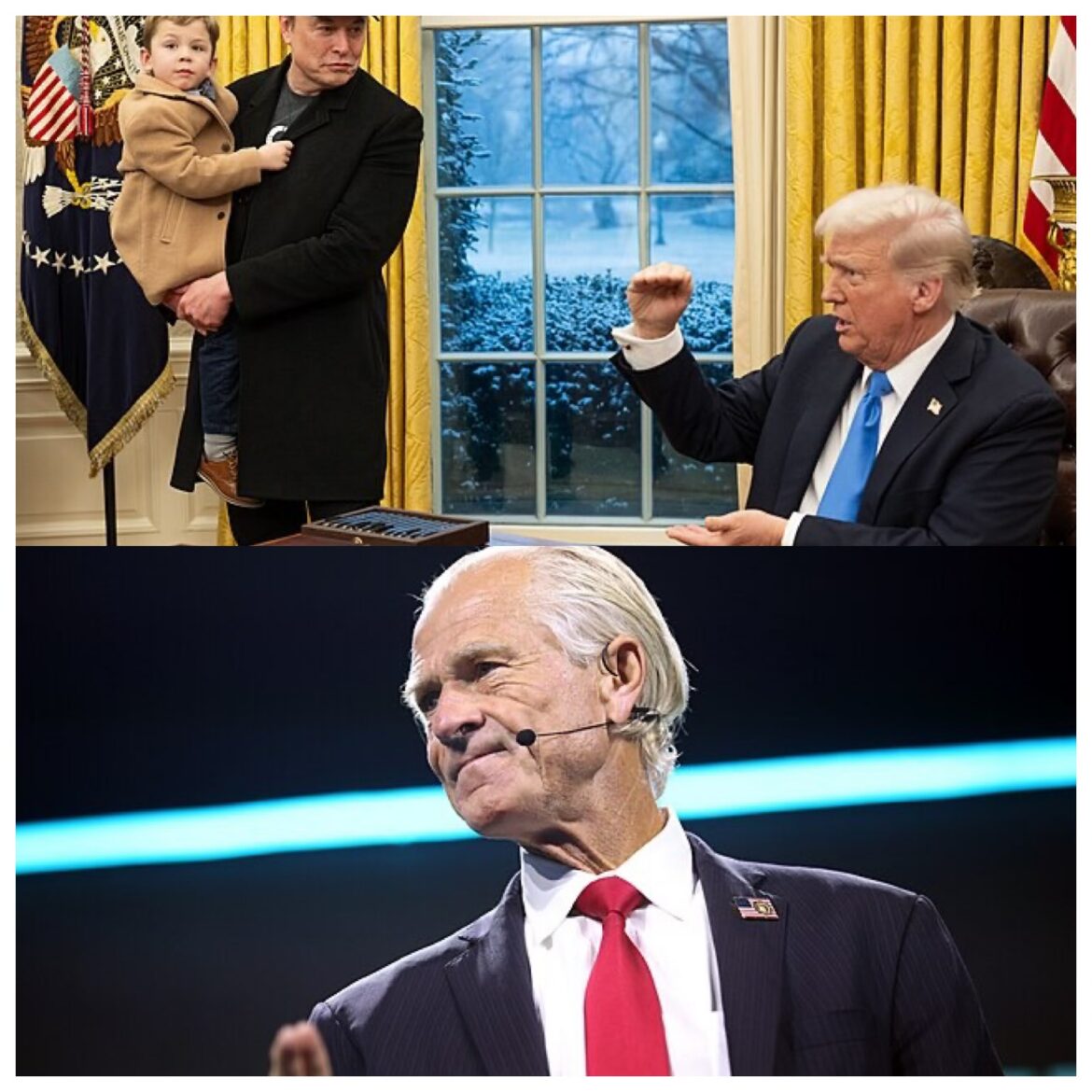In a fiery exchange that has ignited political and economic circles, Elon Musk has launched a scathing attack on Donald Trump’s former trade adviser Peter Navarro, calling him “truly a moron” and “dumber than a sack of bricks.” The clash erupted after Navarro made disparaging remarks about Tesla’s manufacturing practices while defending Trump’s controversial new round of tariffs.
This explosive feud is more than just a war of words—it highlights a growing divide within the MAGA movement as business leaders and political figures clash over the direction of U.S. trade policy. As the global economy reels from mounting trade tensions, Musk’s high-profile criticism brings renewed attention to the costs of protectionism and the future of America’s economic strategy.
The Feud: Elon Musk vs. Peter Navarro
The controversy began when Peter Navarro, speaking on CNBC’s “Squawk Box,” downplayed Tesla’s role in U.S. manufacturing. He claimed that the electric vehicle giant merely “assembles parts from overseas” rather than producing American-made cars. The statement quickly drew ire from Musk, who took to social media and interviews to deliver a sharp rebuttal.
Musk fired back with his trademark bluntness, saying Navarro was “truly a moron” and “dumber than a sack of bricks,” before posting receipts to prove Tesla’s strong domestic production record. Musk didn’t just defend his company—he turned the tables, attacking Navarro’s credibility and, by extension, the logic behind Trump’s latest economic maneuvers.
This spat between one of the world’s most powerful entrepreneurs and a key architect of Trump-era trade policy is the latest signal of a deeper rift within conservative and pro-business circles over the future of globalization, tariffs, and America’s place in the global economy.
Musk Defends Tesla’s American Manufacturing Record
Elon Musk didn’t stop at insults—he brought data.
Pointing to a Cars.com study, Musk reminded critics that Tesla holds four of the top five spots for most American-made vehicles. Unlike many legacy automakers, Tesla produces a significant portion of its vehicles—including batteries and key components—in the United States. This includes massive manufacturing operations in Fremont, California, and Austin, Texas.
Musk emphasized that Tesla leads not just in innovation but in domestic job creation, making Navarro’s claims not only inaccurate but insulting to the thousands of American workers employed by the company.
By setting the record straight, Musk underscored a critical point: while Trump’s team claims to champion “America First” economics, Tesla may be a better embodiment of that principle than some of the policies currently being promoted.
Trump’s New Tariffs and the MAGA Divide
At the heart of this feud lies the latest wave of tariffs unveiled by Donald Trump—measures designed to protect American industries by imposing steep taxes on imported goods, including cars, electronics, and raw materials. Dubbed “Liberation Day Tariffs,” they’ve been pitched as a way to restore U.S. manufacturing independence.
But critics, including Elon Musk, argue the strategy is economically misguided. Tariffs, they say, raise prices for consumers, disrupt complex global supply chains, and invite retaliation from trade partners. The backlash isn’t just coming from Silicon Valley—many conservative economists and pro-business Republicans are privately fuming.
Musk has positioned himself as the voice of reason within this storm. He advocates for a zero-tariff agreement between the U.S. and Europe, calling it a smarter path toward global economic cooperation without sacrificing competitiveness or sovereignty.
As Musk puts it, “Protectionism may sound good on paper, but in reality, it’s a wrecking ball to the very economy it claims to protect.”
Musk’s Trade Philosophy: Free Markets, Not Tariffs
Unlike Navarro’s protectionist approach, Musk’s economic worldview is rooted in technological growth, competition, and global supply chain efficiency. He believes tariffs are a short-term fix that create long-term problems—especially in industries like electric vehicles, where components often come from a diverse array of international suppliers.
Musk warns that continuing down the path of economic isolation will weaken the U.S.’s position in tech innovation and slow the adoption of sustainable energy solutions. In his view, America’s strength lies in its ability to collaborate, compete, and lead—not wall itself off with punitive trade barriers.
Musk’s advocacy for free trade doesn’t mean abandoning national interests—it means achieving them through smarter, more strategic policies that foster both growth and cooperation.



